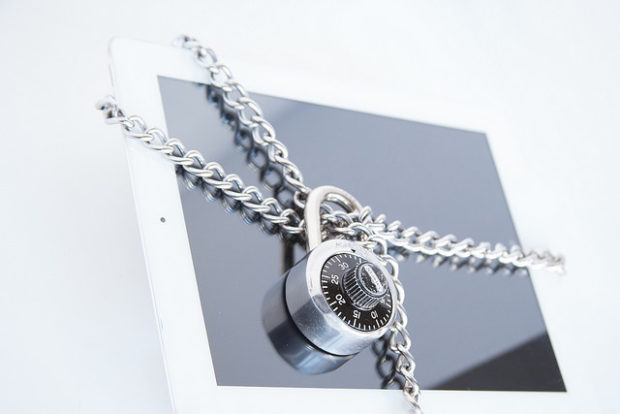Seven Ways to Keep Information Secure When You Work from Home

The number of people working from home is likely to rise in the future. Not only is working from home a bonus for any employee, many employers are seeing the benefits to having a remote workforce such as cutting down on office space and increasing productivity.
However, one thing that can be challenging when you work from home is how to keep information secure.
Here’s how you can avoid leaking or losing valuable information when you work remotely.
Protect your home network
When you work remotely, it’s important not to just add protection to your laptop, you should look at your entire network. Network security protects all of your internet connected devices, from smart speakers to your smart TV, making it harder for hackers to get hold of valuable information.
While this may seem over the top, it’s worth remembering that you may be making phone calls via WiFi, talking about confidential client details around your smart speaker and accessing emails from all sorts of devices. It’s therefore best to ensure that your entire network is protected as well as individual items.
Consider using a separate work laptop
Working from home can make it harder to keep your work and home lives separate. You may be considering using your personal laptop for work, but there are a number of reasons why it’s better to have a separate work laptop if possible:
- It’s easier to work out costs – your company provides the laptop and pays for maintenance, software updates etc.
- It’s easier to organize your files
- Many companies monitor what their workers do when they work remotely, so there’s a risk your employers can see your personal browsing information or files
- If you’re doing some personal browsing online and come across malware or ransomware, you don’t put the entire business network at risk
Unless you’re a freelancer, and therefore expected to provide your own equipment, you should speak to your company about providing a work laptop and the relevant software.
Run updates
Hackers will find it much easier to get into your system if you fail to run updates. Updates include essential, up to date packages for security vulnerabilities. So an out of date laptop is an open invitation to hackers. When you download software, ensure you choose the setting to automatically download updates.
Physically secure your laptop
Some information leaks aren’t sophisticated. Laptops are often stolen from homes or left on trains. At home, make sure your laptop is safely locked away. Be sure it has a difficult to guess password so that thieves can’t access your information. Keep your laptop safe when you travel for business, using a safe in your hotel room and don’t make it obvious you’re carrying a laptop around.
Use a secure internet connection
When working from home, most people simply use their home’s WiFi and use this to access confidential and important information. However, not all home WiFi is safe. Make sure you have a firewall installed and a secure connection, and never give out your password to neighbors. You should also ensure you’ve changed your router password from the default, so it’s not easy to guess.
Back up regularly
One of the worst things that can happen when you work from home is realizing that you have lost an important document. This could be because of computer equipment breaking down, or because you’ve accidentally deleted something. A regular back-up of your work files is important.
Usually, your employers will want the work saved to their secure server. And you could also save work in progress to a secure cloud account, with two-factor authentication to keep it safe.
Ensure you have layered security
If someone gains access to your system, ensure that what they can access is limited. Don’t have a master password and then use it for all your different systems and documents. Create a different strong password for each system that you use and disable auto-logins. While it takes a few extra minutes to get going in the morning, it makes your overall system so much safer when you are away from the office.
In conclusion, working from home can incur many more risks than usual when it comes to information security. From your laptop getting infected with a virus, to losing your computer equipment, there are lots of ways in which you could potentially put your information at risk. That’s why it’s hugely important to put measures in place to keep your information secure before you decide to work away from the office.

